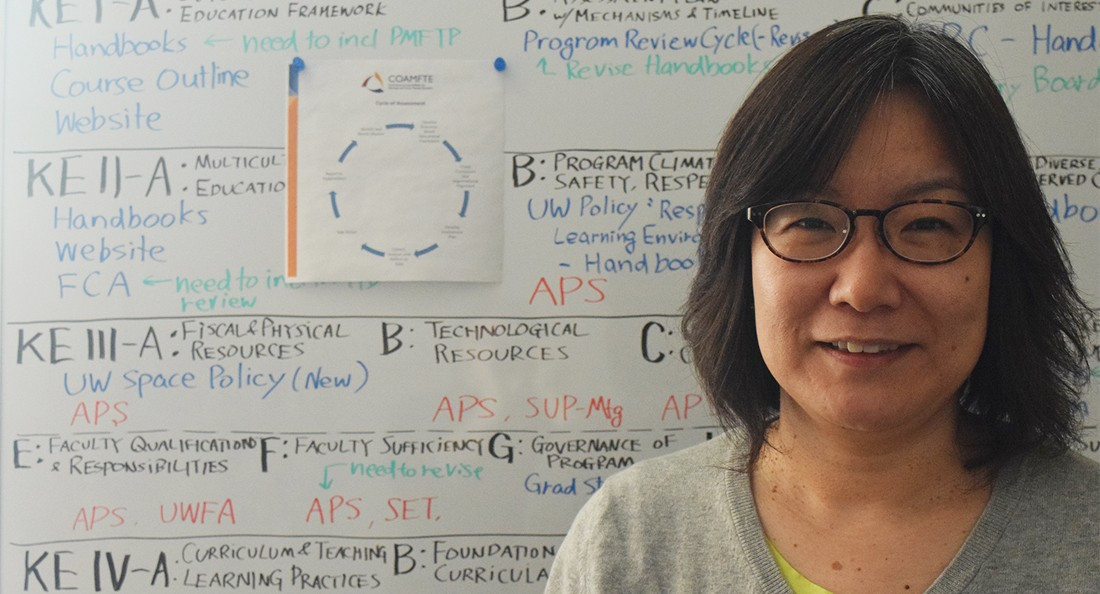PROFile: Narumi Taniguchi
Professor and Director of the Marriage and Family Therapy Program
Professor Narumi Taniguchi has been at the University of Winnipeg (U of W) as the director of the Marriage and Family Therapy Program since she moved to Winnipeg in 2015.
She had previously been working in Montreal, and before that she did her master’s degree, PhD and had also worked in the United States.
The program was recently given accreditation by the Commission on Accreditation for Marriage and Family Therapy Education (COAMFTE). It’s now the second program in Canada to have the accreditation.
Taniguchi says working on getting the accreditation for the program was her priority when she first started at the U of W.
Her original career plan was to be a teacher in Japan, but she says that during her practicum, she realized having a class with 40 to 45 students in it was too much for her.
She found out about Marriage and Family Therapy (MFT) through her uncle.
“My uncle was, I think, one of the first school psychologists in Japan, and he gave (me) this book, and it was written by one of the MFT pioneers … so I read it, and I was like ‘this is it,’” she says.
There were no MFT programs in Japan at that time, so she went to the United States to study.
“I thought if I want to learn family therapy, then I need to learn the culture that this field is developing, so I thought, okay, now that means I have to go to the States,” she says.
“Even counselling, psychology is quite Western, and Japan imported those things into Japan. I worked there, too, after my master’s, I went back and I worked as a counsellor for four years, and I was able to see it’s not fitting,” Taniguchi says. “Some of the things people are trying to do – mimicking Western psychologists and what counsellors are doing – those things just don’t work.”
She says that Japanese culture is an others-centred society, and for some clients, like someone who has Borderline Personality Disorder, setting boundaries can be too much, because they may already think about taking up the counsellors’ time.
“They (Japanese culture) don’t do it differently (than Western culture), and I think that’s the problem,” she says. “But I’ve been away for too long, so I don’t know what they are doing.”
What is your favourite thing about yourself? I think I like that fact that I’m different. I mean in Canada, I look different. I’m not white Canadian, so I look different. And I’m very aware of how I think and how I behave, how I talk. I like thinking different. It’s very interesting that I said that, because that would be the worst nightmare for a Japanese (person). You’d be ostracized. The different is bad in Japan. I think that says a lot about the environment that I’m in – that I’m able to be myself, which is often different from others, and I think that’s valued. I like the fact that I can bring in some different ideas and different perspectives.
Published in Volume 72, Number 13 of The Uniter (January 11, 2018)







